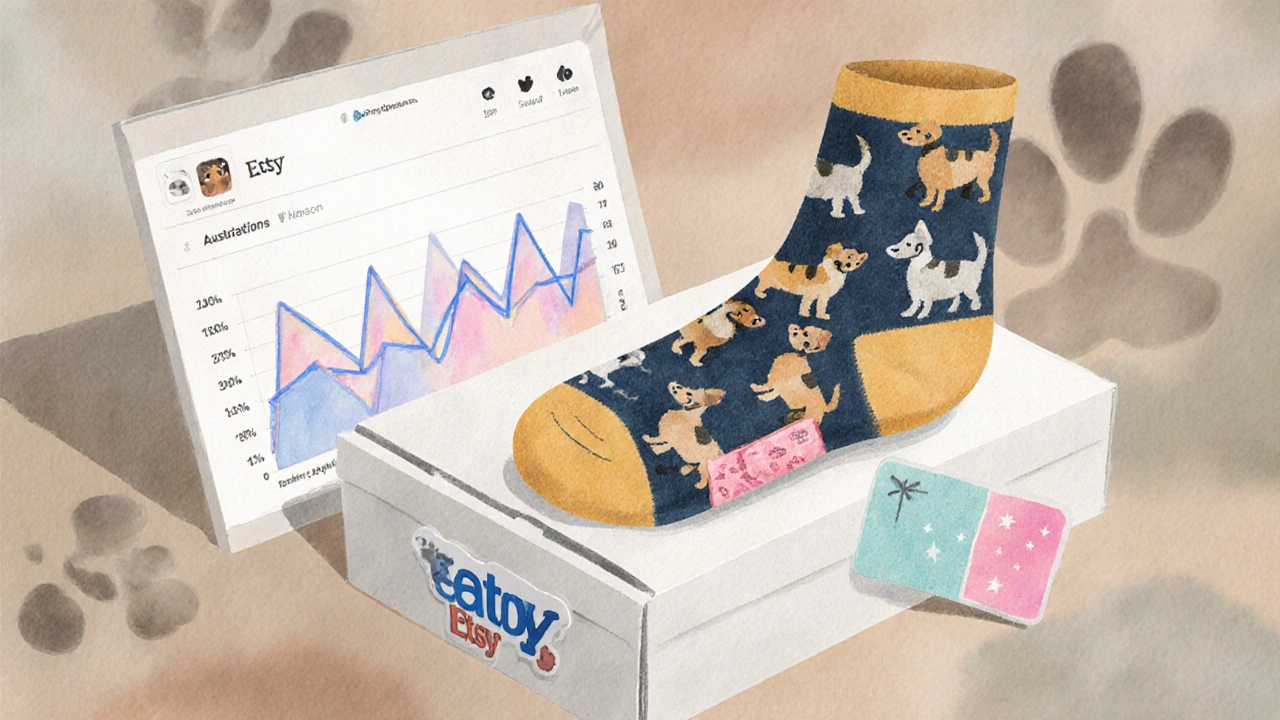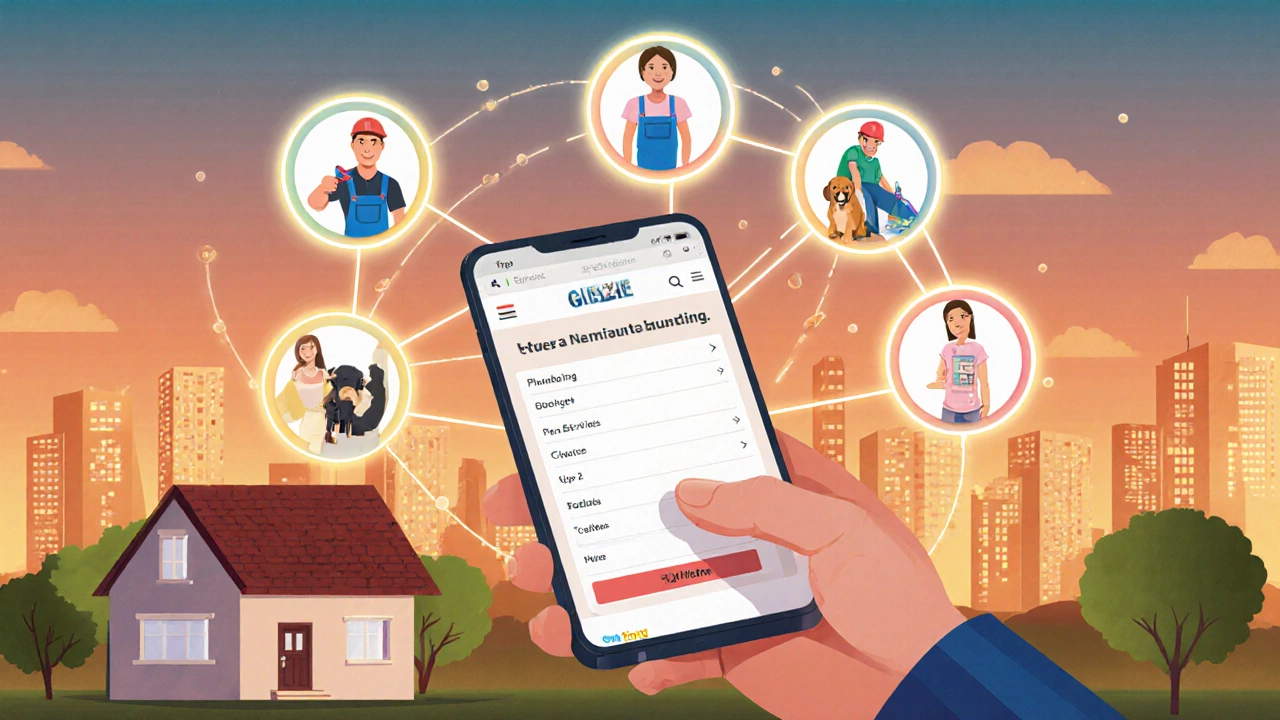Business Idea Matchmaker
Find Your Perfect Home-Based Business
Answer these questions to discover which business idea from our article is best for you.
Your Recommended Business
If you're wondering which business is best to start today, you're not alone. With inflation still biting, remote work sticking around, and AI tools becoming cheaper than coffee, more people are looking for ways to earn without commuting, paying rent on an office, or quitting their day job. The truth? The best home-based business in 2025 isn’t about getting rich overnight-it’s about starting something you can actually run from your kitchen table, with little upfront cost and real demand behind it.
Virtual Assistant Services Are Still in High Demand
Every small business owner, freelancer, and solopreneur is drowning in admin work. Emails, calendar bookings, invoice chasing, social media scheduling-these aren’t glamorous, but they’re constant. That’s where virtual assistants (VAs) come in.
You don’t need a degree. You don’t need to be a tech wizard. You just need to be organized, responsive, and good with tools like Google Workspace, Trello, and Calendly. Many clients hire VAs for 10-20 hours a week at $20-$35/hour. In Australia, the average VA earns $28/hour. Start by offering services to local coaches, real estate agents, or Etsy sellers. Join Facebook groups like "Australian Virtual Assistants" or post on Fiverr and Upwork. Within three months, you can build a steady client base.
One Sydney-based VA, Sarah, started with just three clients. She now manages schedules, bookkeeping, and email campaigns for seven small businesses. She works 15 hours a week and makes $1,200/month-on top of her part-time job.
Print-on-Demand Stores Need Zero Inventory
Want to sell custom T-shirts, mugs, or phone cases without buying a single item upfront? Print-on-demand (POD) is your answer. Platforms like Printful, Teespring, and Gelato connect to Shopify or Etsy. You design the product. They print, pack, and ship it. You earn the difference.
Here’s the catch: your designs must stand out. Generic quotes like "Coffee is my love language" won’t cut it anymore. Instead, focus on hyper-local themes-think "Sydney Harbour Bridge Sunset" or "Melbourne Rain Days Are the Best Days." Or target niche hobbies: "Cat Owners Who Hate Vacuuming," "Gardening with Too Many Potatoes," or "Dog Walkers Who Talk to Their Pets Out Loud."
One Melbourne-based designer, Mark, created a line of pet-themed socks for dog owners in Australia. He used Canva to design them, listed them on Etsy, and spent $50 on Instagram ads. Within six weeks, he sold 217 pairs. His profit? $1,800. No warehouse. No packing. No shipping.
AI-Powered Content Creation for Local Businesses
Small businesses need blogs, social posts, and email newsletters. But most don’t have time-or the budget-to hire a copywriter. That’s your opening.
You don’t need to be a writer. You need to know how to use AI tools like ChatGPT, Claude, or Gemini the right way. Start by offering "Local Business Content Packages"-three social media posts, one blog post, and one email newsletter for $150/month. Use AI to draft the content, then edit it to sound human. Add local references: "This week’s weather in Brisbane was perfect for a BBQ-here’s how your restaurant can capitalize on it."
One client in Adelaide hired a VA to manage her bakery’s Instagram. The VA used AI to generate weekly posts, tagged local food bloggers, and ran a simple giveaway. Within two months, her follower count jumped from 800 to 3,200. She now pays $200/month for the service.
Online Tutoring or Skill Coaching
If you’re good at something-whether it’s Excel, guitar, French, or basic car maintenance-you can teach it online. Platforms like Tutorful, Superprof, and even Zoom make it easy to set up sessions.
You don’t need to be a certified teacher. You just need to be better than the beginner. A Sydney mom started tutoring high school students in Year 10 Maths after her own kids struggled. She charged $35/hour, posted on local Facebook groups, and within three months had 12 regular students. She now works two nights a week and earns $1,400.
For non-academic skills, think "coaching" instead of "tutoring." Offer a 30-minute Zoom session on "How to Fix a Leaky Tap," "How to Start a Garden in a Balcony," or "How to Use Canva for Non-Designers." Charge $25-$50 per session. Record the sessions and sell them as digital downloads later.

Specialized Dropshipping (Niche, Not General)
Dropshipping isn’t dead-it just got smarter. The old model of selling phone cases and fitness bands is saturated. But selling niche products to specific audiences? That’s still profitable.
Examples: eco-friendly pet waste bags for Australian dog owners, Australian-made beeswax wraps for zero-waste households, or ergonomic laptop stands designed for remote workers with back pain. Find suppliers on AliExpress or CJ Dropshipping. Use Shopify to build a simple site. Run targeted Facebook ads to people who follow zero-waste blogs or work-from-home groups.
A Perth couple started selling reusable menstrual products to university students. They didn’t run Google Ads. They posted in student Facebook groups, offered a free sample to the first 20 people, and got word-of-mouth traction. Within four months, they hit $5,000/month in sales-with $3,200 profit.
Home-Based Meal Prep or Specialty Baking
People are tired of takeout. They’re also tired of cooking after a long day. That’s why home-based meal prep is booming-especially in cities like Sydney and Melbourne.
You don’t need a commercial kitchen. In Australia, you can legally sell home-cooked meals under the "home-based food business" rules, as long as you follow basic hygiene standards (clean surfaces, proper storage, allergen labeling). Focus on one thing: keto lunches, vegan protein bowls, gluten-free cookies, or baby food purees.
One woman in Bondi started making gluten-free brownies for friends. She posted a photo on Instagram with the caption: "No one will guess these are gluten-free." Within a week, she had 37 orders. Now she delivers 120 portions weekly. She charges $8 per brownie. Her monthly revenue? $3,840. Her costs? Under $800.
Local Service Booking Platform (For Handymen, Cleaners, Pet Sitters)
There are thousands of skilled tradespeople in Australia-plumbers, cleaners, dog walkers-who don’t have websites. They rely on word of mouth or Facebook groups. You can fix that.
Create a simple website or Google Site listing local service providers in your suburb. Offer to manage their bookings, collect payments via PayPal or Afterpay, and handle customer messages. Charge them $20-$50/month for the service.
One guy in Newcastle started this for local pet sitters. He built a Google Site with photos, availability, and reviews. He got 12 sitters on board. He now takes 10% of every booking. He doesn’t do any work himself. He just connects people. He makes $1,100/month.

What to Avoid
Not every "side hustle" is worth your time. Stay away from:
- Multi-level marketing (MLM) schemes like Herbalife or Avon-they rely on recruiting, not selling.
- Stock trading or crypto arbitrage-it’s gambling with your savings.
- Creating apps or SaaS tools-unless you’re a developer, the cost and complexity aren’t worth it.
- Buying existing websites from Flippa-most are overpriced and require technical skills you don’t have.
Focus on businesses that require your time, not your savings.
How to Start Today
Here’s the fastest way to pick your path:
- Write down three things you’re already good at (e.g., organizing, writing, baking, fixing things).
- Ask five people: "What’s something you wish someone could do for you?" Write down their answers.
- Find one idea that overlaps between your skills and their needs.
- Offer that service for free to one person this week. Get feedback.
- Charge $10-$20 for the second person. See if they pay.
If someone pays you-even $10-you’ve found a business. If they don’t, try another idea. No need for business plans, loans, or fancy websites. Just start small, get feedback, and scale.
Final Thought
The best business to start today isn’t the one with the biggest profit margin. It’s the one you can start tomorrow. No permits. No inventory. No office rent. Just you, your phone, and a clear offer that solves a real problem. The market isn’t waiting for perfection. It’s waiting for someone who shows up.
Can I start a home-based business without any money?
Yes. Many home-based businesses like virtual assisting, tutoring, or content creation require only your time and a smartphone or laptop. You can start with free tools like Canva, Google Docs, and Facebook Groups. The key is offering a service people are willing to pay for-not buying equipment or software upfront.
Do I need to register my home-based business in Australia?
If you’re earning more than $75,000 a year, you must register for GST. If you’re using a business name (not your own), you need to register that name with ASIC. For most small home businesses under $75k, you can operate under your legal name without formal registration. But it’s wise to get an ABN-it’s free, takes 10 minutes, and makes invoicing easier.
What’s the most profitable home business in 2025?
Profitability depends on your effort, not the idea. But businesses with high margins and low overhead-like AI content services, niche print-on-demand, or specialized tutoring-tend to return the best results. A VA earning $30/hour working 15 hours a week makes more than someone running a low-margin dropshipping store with 100 orders a month.
Can I run a home-based business while working full-time?
Absolutely. Most successful home businesses start as side gigs. The key is consistency-not hours. Even 5-10 focused hours a week can grow into a full income over 6-12 months. Start small. Test one idea. Don’t quit your job until your side income hits 70% of your salary.
How do I find customers for my home business?
Start locally. Join Facebook groups for your city or suburb. Post in community boards. Offer free value first-a free 15-minute consultation, a downloadable checklist, or a sample service. People buy from people they know. Word of mouth still beats ads in small communities.
Is AI replacing home-based business owners?
AI is replacing tasks, not people. It can write emails, design logos, or schedule posts-but it can’t build trust, understand local context, or adapt to a client’s unique needs. The best home-based business owners use AI as a tool, not a replacement. The human touch-personalized replies, quick problem-solving, and real empathy-is still what customers pay for.

